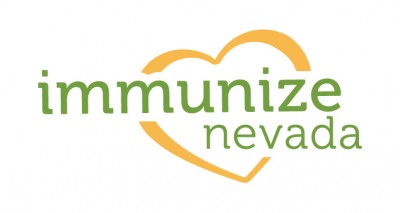GUEST POST: HPV: It’s more than just warts. Let’s talk HPV & Cancer.
01 January, 2015
 At NCC, our strength is in our partners. With that in mind, we'll be sharing a series of guest posts from our partners about various topics in cancer control and cancer care. It's Cervical Health Month, so we begin this series with a detailed look at HPV, the primary cause of cervical cancer, from our friends at Immunize Nevada.
At NCC, our strength is in our partners. With that in mind, we'll be sharing a series of guest posts from our partners about various topics in cancer control and cancer care. It's Cervical Health Month, so we begin this series with a detailed look at HPV, the primary cause of cervical cancer, from our friends at Immunize Nevada.
What is HPV?
Human papillomavirus (HPV) is a sexually transmitted disease (STD) that causes genital warts but it is also the source of a variety of cancers. There are approximated to be 40 types of HPV that can infect the genital region of men and women. These HPV infections are most known for causing cervical cancer, but can also cause anal, vaginal, vulvar, penile, and oropharyngeal cancers. HPV is so common that nearly all sexually active people will come in contact with it in their lifetime. 1
HPV can cause cervical cancer, as well as other cancers. Can you discuss that a little more?
HPV infections can be divided into two categories referred to as high risk types and low risk types. Low risk HPV infections are the kinds that cause genital warts and are not linked to any cancers. High risk HPV infections are those that can cause cancer. Most HPV infections are cleared by the immune system and go away on their own within a couple years. Persistent HPV infections are infections that do not resolve themselves. Persistent high risk HPV infections cause cell changes and abnormalities that can progress into cancer. 2
Is there a cure for HPV?
Unfortunately, there is no cure for HPV but there are many convenient and easy methods to prevent HPV. Limiting sexual partners, using condoms with every sexual encounter, and getting the HPV vaccination can greatly reduce your chances of getting HPV. Currently there are two vaccines that protect against HPV, Gardasil and Cervarix. Gardasil is available to both males and females, and Cervarix is for females only. Both vaccines require a 3 dose series that is completed over a period of 6 months, which should begin at 11-12 years of age. Both of these vaccines are very safe and highly effective in protecting against HPV & the associated diseases, including cancer.
Although there is no cure for the virus, health issues, such as warts and cancer, caused by HPV can be treated. Treatments include cervical screening for abnormal cell growth, removal of warts and abnormal cells, and topical treatment of warts. More information on HPV treatment can be found at http://www.cdc.gov/hpv/treatment.html
Does the HPV vaccination still work for kids older than 11-12?
HPV vaccination should be routinely administered to boys and girls at 11-12 years of age. However, catch-up vaccination is recommended for males and females, 13-26 years of age. The vaccine remains to be very safe and effective when given in this later age range. It is recommended to administer the HPV vaccine as early as possible. Vaccinating at 11-12 years old is best practice because it is important to vaccinate tweens before they have ever come in contact with the virus and because this age group shows the best immune response to the vaccine.
What's the best way to affirm with parents that HPV vaccination is cancer prevention and not related to sex?
The best way to approach recommending the HPV vaccine is to treat just like it is any other adolescent vaccine. At 11-12 years old kids should be receiving the “tween vaccine bundle,” which includes a yearly flu vaccine, the first dose of HPV, the first dose of meningococcal, and a TDAP booster. The least complicated tactic is to make a routine recommendation for the entire bundle. For more tips on recommending the HPV vaccine to parents please visit: http://www.cdc.gov/vaccines/who/teens/for-hcp-tipsheet-hpv.pdf
If parents are apprehensive about the HPV vaccine, providers can explain to them that it is important to give it to a tween at 11-12 years old because that is when their bodies will produce the best immune response and develop protection before they ever come in contact with the virus. Providers should also assure them that multiple scientific studies have been done providing evidence that receiving the HPV vaccine does not promote sex in tweens. 3-4 Remember to remind parents that the HPV vaccine is cancer prevention and it will protect their tweens years into the future, and will benefit them in their adult lives.
Are there programs for free or reduced-cost HPV vaccination?
The HPV vaccine costs approximately $130 per vaccine; with 3 doses that is $390 for the entire series. For many families this would be considered an unaffordable expense, but it is important to know that there are resources available to help reduce the financial expense of the HPV vaccine on families.
Because of the proven efficacy of HPV vaccination, the ACA requires all new private insurance plans to cover HPV vaccines if the patient is within the recommended age group of 9-26 years of age. Public insurance plans, such as Medicaid, will also cover the HPV vaccine within the recommended age group. It is recommend that you call the insurance company ahead of time to make sure the vaccine is covered under you or your patient’s plan.
If the vaccine is not covered under insurance, a child may be covered through the Vaccines for Children (VFC) program. The VFC program throughout the state of Nevada pays for vaccines for children 18 years of age and younger who are Medicaid eligible, uninsured or underinsured, or American Indian or Alaskan Native. For more information on VFC Nevada please visit: http://www.vfcnevada.org/
For adults seeking catch-up immunization who are low-income, uninsured, or underinsured, Merck & GlaxoSmithKline (GSK) have established assistance programs to provide free vaccines:
Merck provides the Gardasil vaccine to men and women over the age of 19. Please visit http://www.merckhelps.com/ or call 1-800-293-3881 for more information.
GSK provides the Cervarix vaccine to women 19-25 years old. Please visit http://www.gsk-vap.com/ or call 1-877-822-2911 for more information.
About the Author
 Ashley McHugh joined Immunize Nevada in March 2014 and currently serves as the HPV Project Manager. She plans, coordinates, and evaluates statewide education and awareness projects, as well as performs community outreach, stakeholder management, and builds community collaborations. Ashley holds a B.S. in Community Health Sciences and an MPH with an emphasis in Social Behavioral Health, both earned from the University of Nevada, Reno. Throughout her studies, vaccinations became a focal point of her interests and is an area she is passionate about in the public health field. Her enthusiasm surrounding immunization practices motivates her to play an influential role in the community by positively impacting local immunization efforts.
Ashley McHugh joined Immunize Nevada in March 2014 and currently serves as the HPV Project Manager. She plans, coordinates, and evaluates statewide education and awareness projects, as well as performs community outreach, stakeholder management, and builds community collaborations. Ashley holds a B.S. in Community Health Sciences and an MPH with an emphasis in Social Behavioral Health, both earned from the University of Nevada, Reno. Throughout her studies, vaccinations became a focal point of her interests and is an area she is passionate about in the public health field. Her enthusiasm surrounding immunization practices motivates her to play an influential role in the community by positively impacting local immunization efforts.
References
1 Centers for Disease Control and Prevention (CDC). (2014, March 14). Genital HPV infection - fact sheet. Retrieved from http://www.cdc.gov/std/HPV/STDFact-HPV.htm
2 National Cancer Institute (NCI). (2012, March 15). HPV and cancer fact sheet. Retrieved from http://www.cancer.gov/cancertopics/factsheet/Risk/HPV
3 Bednarczyk, R., Davis, R., Ault, K., Orenstein, W. and Omer, S. (2012) Sexual activity-related outcomes after human papillomavirus vaccination of 11- to 12-year-olds. Pediatrics 130: 798–805.
4 Smith L.M., E. C. Strumpf & L. E. Levesque (2014). Effect of human papillomavirus (HPV) vaccination on clinical indicators of sexual behaviour among adolescent girls: the Ontario Grade 8 HPV Vaccine Cohort Study, Canadian Medical Association Journal DOI:http://dx.doi.org/10.1503/cmaj.140900
You May Also Like

Nevada Cancer Coalition reaffirms support for multi-dose HPV vaccination schedule
02.13.2026
On Jan. 5, 2026, the Deputy Secretary of the U.S. Department of Health and Human Services accepted a major revision to the standing U.S.

Position Statement on HPV Vaccination Schedule
02.13.2026
On January 5, 2026, the Deputy Secretary of Health and Human Services accepted a major revision to the standing U.S.

A new option for cervical cancer screening: What at-home self-collection means for Nevada
12.22.2025
Cervical cancer screening in the U.S.